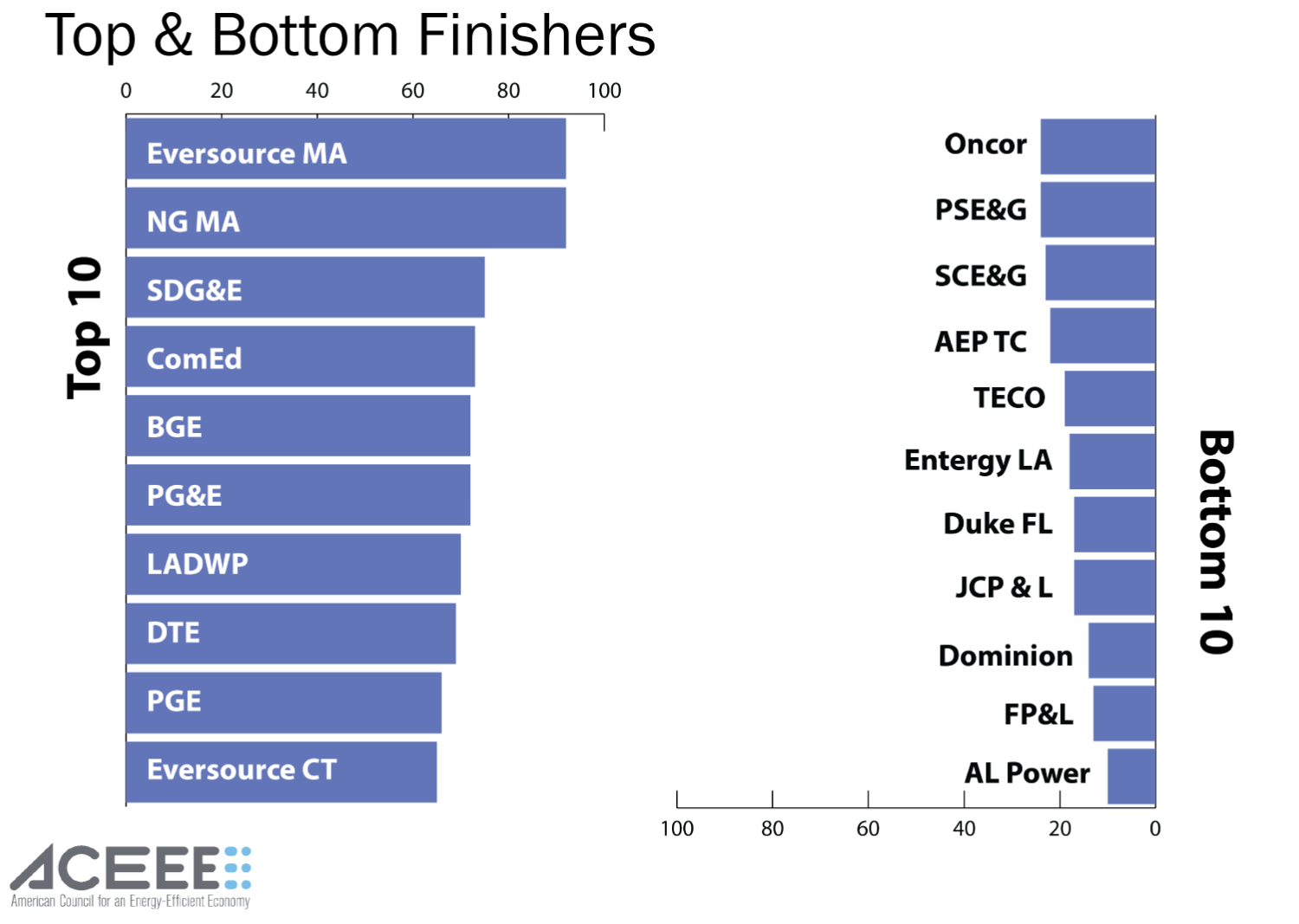On February 20th, 2020 the American Council for an Energy-Efficient Economy (ACEEE) released the 2020 edition of the Utility Energy Efficiency Scorecard.
.png?width=1488&name=2020%20Utility%20Energy%20Efficiency%20Scorecard%20(2).png)
This second edition of the Utility Energy Efficiency Scorecard assesses the 52 largest US electric utilities across a range of energy efficiency metrics. The scorecard assessed the utilities based on 20 different metrics. The metrics fall into three categories critical to utility-sector efficiency:
- Energy efficiency program performance
- Program offerings and portfolio comprehensiveness
- Enabling mechanisms for efficiency.
Eversource MA and National Grid MA both performed best, tying for the top spot. The other top 10 utilities include San Diego Gas & and Electric, Commonwealth Edison, Baltimore Gas & Electric, Pacific Gas & Electric, Los Angeles Department of Water and Power, DTE, Portland General Electric, and Eversource CT.

LADWP and Consumer's Energy Michigan were the biggest improvers from the previous edition of the Utility Scorecard.
Since the previous edition, utilities have dramatically ramped up energy savings, increased their focus on helping low-income communities save energy, and begun to invest in promoting electric vehicles. The Scorecard gives utilities, regulators, and other stakeholders benchmarking data and a roadmap they can use to track performance and strengthen utility-sector energy efficiency.
The scorecard assessed the utilities based on 20 different metrics and joins ACEEE's other scorecards, including the City Energy Efficiency Scorecard and the State Energy Efficiency Scorecard. Of note is that all the top 10 utilities are all in states that also rank in the top for State energy efficiency policies. Overall, savings for consumers are increasing as utilities are now offering 300 more programs than in 2015, with an increased focus on low income communities.
New programs are now including strategic electrification plans, advanced technology like ground source heat pumps, deep energy efficiency through thermal improvements, and grid interaction with flexible use of low-carbon electricity.

